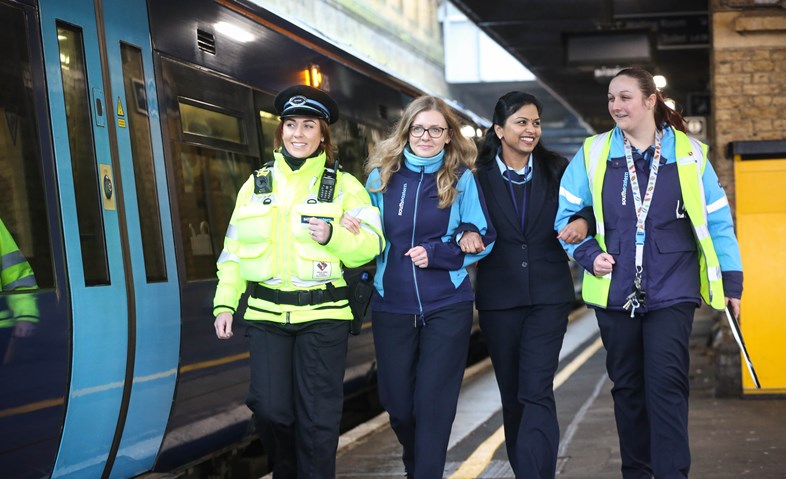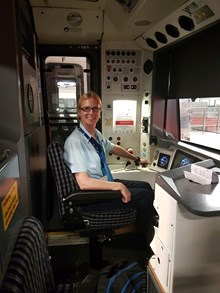London, 7 March: This International Women’s Day (8th March), Southeastern is shining a spotlight on its policies for women among its workforce. Having seen the number of its female drivers double in the last four years and applications rise to a record high, the train operator who ran the first all-female operated train service in 2020, shows no sign of slowing down in its advocacy for women.
This passion for progress is thanks to the enthusiasm of Southeastern teams and individuals. Driven by her experience of a miscarriage in 2016, Southeastern’s Head of People, Kirsten Howes, realised many women could be suffering in silence. Committed to helping make positive change, Kirsten works alongside Southeastern’s Women in Rail Empowerment group on its policies to support women from recruitment through to the long-term retention of staff.
Over the last year, Southeastern has helped create an even better workplace for women:
- Recruiting Female Drivers: Today, more women are applying to drive Southeastern trains than ever with applications rising to a record high of 6,566. The number of women currently driving Southeastern trains has also doubled in the past four years.
- Ending Period Poverty: Take One If You Need One, the Southeastern scheme providing staff with free period products, has been expanded to more workplaces across its network to help tackle period poverty.
- Finding Support for Fertility: 2021 saw the creation of Southeastern’s fertility support group dedicated to helping colleagues and their partners with fertility struggles, through in-person events and an all-inclusive podcast.
- The First Pregnancy Loss Policy: Southeastern launched its first pregnancy loss policy, working with the Miscarriage Association to support colleagues through bereavement following a loss at any time during their pregnancy, regardless of their length of service. Manager briefings were also introduced to guide leaders in supporting staff affected by such a loss.
- Managing the Menopause: Having launched its menopause policy in 2019, Southeastern is the only train operator to provide menopause awareness training for more than 100 people across its business. As a menopause friendly employer, in 2021 Southeastern updated all of its policies and guidance, offered free menopause support packs and a webinar, which was opened to rail companies such as Arriva and GTR. This work will evolve in 2022, to include the impact of childlessness during and post-menopause.
- Ending Endometriosis Stigma: Now a certified endometriosis friendly employer, Southeastern created a group where staff can share their experiences and gain peer support to manage the condition.
- Creating Community: As a WORK180 endorsed employer of women Southeastern is constantly making improvements to its HR policies such as improving parental leave and overhauling gender identity guidance, alongside creating a colleague network group for those with experiences of disabilities and long-term conditions.
(Kelly Joe Ballard, Southeastern driver and driving instructor)
Kirsten Howes, Head of People at Southeastern said: “When I experienced my miscarriage, I was a HR Manager, and a large part of my job was looking at the reasons people were off sick. Yet, I’d never come across someone taking time off because they or their partner had suffered a miscarriage. I knew, statistically, that our people (men and women) must be experiencing miscarriages, they just weren’t talking about it. This led to the development of our first pregnancy loss policy, so that team members could connect with others with shared experiences.”
(Kirsten Howes, Head of People)
Speaking on Southeastern’s contribution to the industry, The Rail Minister, Wendy Morton said: “As a woman in a traditionally male dominated industry, I understand the importance of diversity when it comes to driving innovation, fresh thinking and success in all sectors. From running its first all-female operated train service in 2020 to doubling the number of female train drivers in the past four years, Southeastern are leading the way in getting more women into transport-related careers.”
As a timely reminder of the importance of supporting women within the workforce, Kirsten is available for interviews to discuss developing the pregnancy loss policy and Southeastern’s people policies.
ENDS







